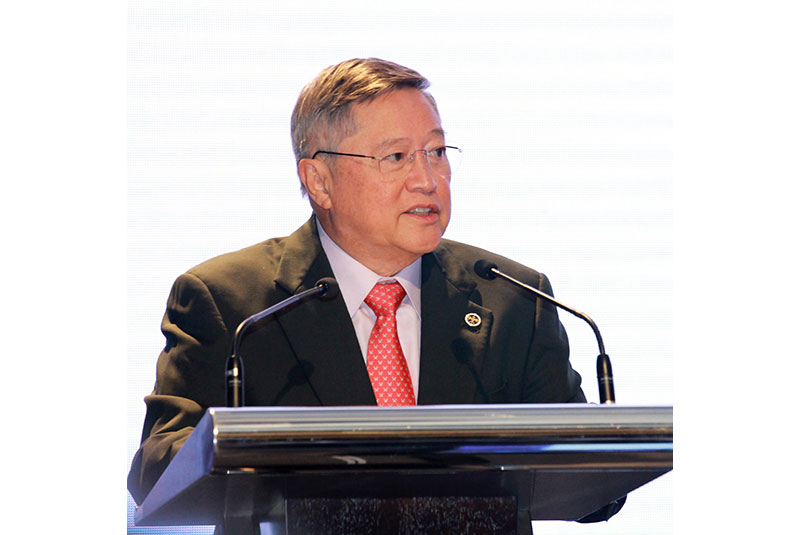Philippine panda bond float moved to Q1 2018

In a text message to reporters, Finance Secretary Carlos Dominguez said the government has moved the schedule of its maiden panda bond issuance to early 2018 instead of the last quarter of the year as it is still awaiting approval from Chinese regulators. File
MANILA, Philippines — The government’s plan to float $200 million worth of panda bonds or renminbi-denominated debt papers has been postponed to the first quarter of 2018, the Department of Finance (DOF) said yesterday.
In a text message to reporters, Finance Secretary Carlos Dominguez said the government has moved the schedule of its maiden panda bond issuance to early 2018 instead of the last quarter of the year as it is still awaiting approval from Chinese regulators.
“The Bureau of the Treasury is awaiting final approval from the People’s Bank of China so the schedule for issuance has been moved to first quarter,” Dominguez said.
In addition, Dominguez said the offering is still dependent on market conditions and the price competitiveness of the securities.
“Similar to other fund raising activities, panda bond offering is subject to favorable market conditions in the onshore RMB market and provides competitive pricing compared to other funding options,” he said.
Earlier, National Treasurer Rosalia de Leon said the floating of renminbi securities in the Chinese onshore market would diversify the funding sources of the government.
The DOF has tapped the Bank of China as the lead underwriter for the panda bond float, enabling the bank to purchase the securities from the Philippine government, and then resell it to the Chinese market for profit. It will also serve as the bookrunner for the fund raising activity.
Meanwhile, Dominguez said the country is still on track for its usual start-of-the-year dollar bond sale. However, he said the amount is still to be determined.
The government borrows from both local and foreign lenders to pay maturing debt and to plug its budget deficit which was raised to three percent of the projected gross domestic product as part of the Duterte administration’s expansionary fiscal policy.
This fiscal strategy aims to give the government proper leeway to implement its massive infrastructure program.
To complement the fund raising activity of the government, the DOF is also pushing for the passage of a tax reform bill, which is seen to help boost investments in infrastructure and social protection programs.
Dominguez thanked the Senate for approving its version of the Tax Reform for Acceleration and Inclusion Act.
“We thank the Senate for its vote on its version of the tax reform bill. We hope that with the Senate’s swift action on the measure, the two chambers of the Congress can soon sit down in the bicameral conference committee to thresh out a reconciled version of the bill that would provide the most benefit for the majority of the Filipinos while raising additional revenues to support our infrastructure modernization program,” he said.
- Latest
- Trending


























